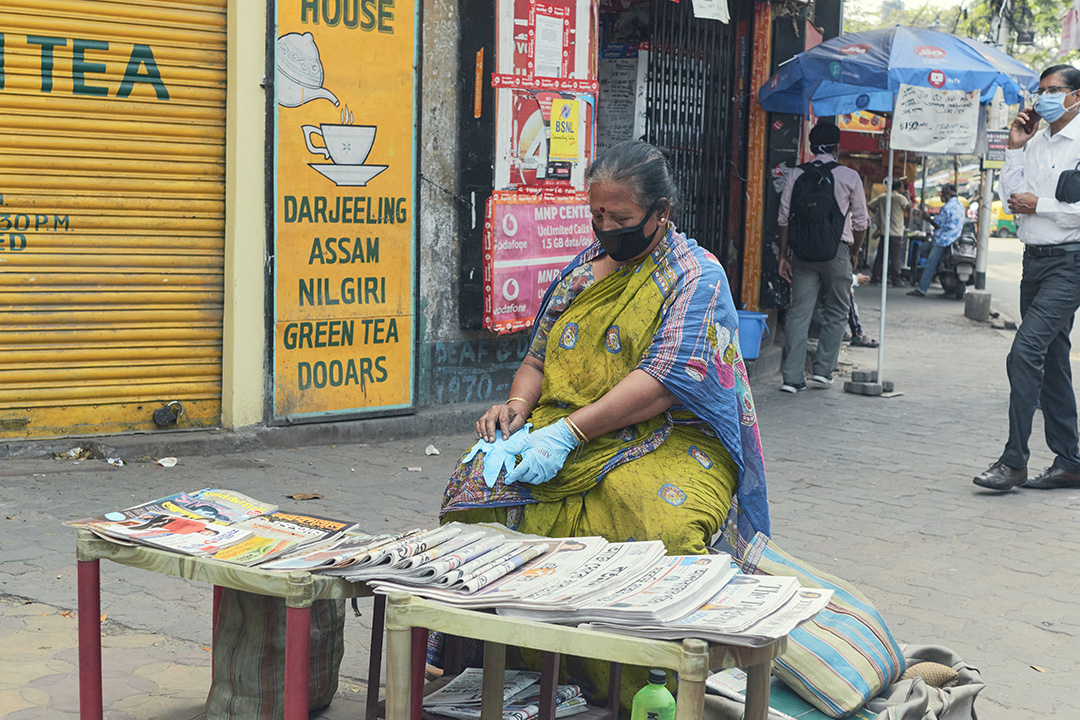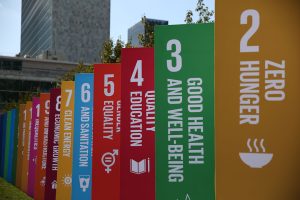By Andrea Ordóñez and Arvinn Gadgil
A year and a half into the COVID-19 pandemic, the dust has yet to settle on how the balance of power has shifted world-wide – from the interpersonal to the global levels. What has become increasingly clear, however, is the discontent over how power is distributed.
Across different regions, the pandemic has affected the distribution, use and oversight of power determining people’s well-being. As COVID-19 serves as an excuse to centralize and consolidate power, diminished trust in governance systems and weakening social contracts are spreading.
This has become very clear in recent regional dialogues led by Southern Voice and the United Nations Development Programme (UNDP). In May and June, as countries faced various levels of the pandemic outbreak, we asked a handful of experts in each region to explain how COVID-19 has affected progress towards Sustainable Development Goal 16 (measuring peace, justice, and inclusion). Specifically, we wanted to know how the relationship between people and their governments has changed because of the crisis.
We heard similar narratives across all regions. COVID-19 is revealing extreme inequalities and the dangerous impact of the pandemic on the distribution of power.
The first trend is that COVID-19 has resulted in the abuse of legitimate power and shrinking civic space. According to CIVICUS, only 3.4% of the world’s population lives in countries with open civic space. And now we are witnessing COVID-19 emergency measures accelerating the deterioration of human rights and fundamental freedoms – a trend that began prior to the pandemic. COVID-19 measures, for example, in some cases are used to undermine dissent, target human rights defenders and the media, and erode oversight institutions – including the judiciary, legislative, and national human rights institutions. Attention should be paid to the brand of politics that have silenced opposition voices and attacked minority rights.
Second, we increasingly see social exclusion sowing seeds for future conflicts. Exclusion and marginalization are used to disempower and perpetuate everyday violations against poor and marginalized populations. From enabling corruption at all levels and promoting political fragmentation, different interests have sought to disenfranchise targeted communities. The resulting high levels of government mistrust can be potent drivers of instability and unrest. Across Latin America, for example, where there are deep inequalities based on income, race, and ethnicity, we see widespread protests following the passing of government policies that unfairly penalize the poor and marginalized.
Third, power struggles in the physical space are spilling over into the digital arena. During COVID-19, proliferation of mis/disinformation has risen. Targeting of political opposition and civil society, particularly women, to disempower and silence individuals and groups has also increased. Activists and bloggers are being monitored and access to online platforms curtailed. Additionally, with 3.7 billion people – mostly women and from developing countries – not connected to the Internet, the digital divide remains a challenge reinforcing inequality.
We are at a critical juncture now where we must look beyond the short-term and move away from a solely health-oriented response to the pandemic. SDG 16 provides a manual for this course correction. We must refocus on how to correct some of the more long-term, insidious governance trends that are emerging, before it is too late. Experience tells us that, over time, large power imbalances trigger instability and conflict. If we do not urgently correct these disparities, we stand to lose much of the progress made towards sustainable development.
Some ideas emerging from the recent dialogues have emphasized:
- Fostering oversight of governance institutions by supporting judicial and legislative independence to check executive powers.
- Protecting space for inclusive dialogue and debates among civil society and political parties, as well as inspiring global social movements and solidarity across borders.
- Empowering independent oversight bodies to defend human rights and protect fundamental freedoms in the face of closing civic space and erosion of the rule of law.
- Protecting digital spaces that have become powerful tools for political participation. Young people, in particular, have effectively used the digital sphere and social media to mobilize and be part of the political discourse.
Goal 16 will be reviewed at this year’s High Level-Political Forum. It is a chance to explore how the 2030 Agenda can be leveraged by governments, civil society, and private businesses. Together, they need to work to keep civic space open, mobilize for people-centred governance, and advocate for a human rights-based recovery to the pandemic. It is not sufficient to only imagine a more peaceful, just and inclusive world, we must actively work together to empower people to demand it.
By Andrea Ordóñez, Director Southern Voice, and Arvinn Gadgil, Director, UNDP Oslo Governance Centre

